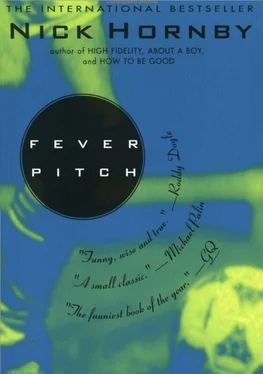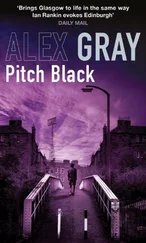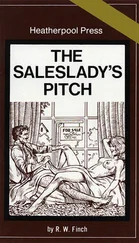One beautiful spring morning in 1982 I took Ray’s son Mark, then a teenager, down to Highbury to see the West Ham game, and explained to him in an insufferably old-hand way how and where the trouble, if any, would start. I pointed to the top right-hand corner of the North Bank and told him that there were probably West Ham fans up there, without colours, who would either find themselves surrounded by police, and thus rendered harmless, or who would attempt to force their way under the roof and drive out the Arsenal fans gathered there; which was why we were safe on the bottom left-hand side, where I had been standing for a few years now. He was duly grateful, I felt, for my guidance and protection.
In the event I was able, by casting an expert eye over the area, to reassure him that there were no Hammers fans there, and we settled down to watch the game; and about three minutes after the kick-off, there was a huge roar immediately behind us and that terrible, eerily muffled sound of boot on denim. Those behind us pushed forward, and we found ourselves being forced towards the pitch—and then there was another roar, and we looked round and saw billowing clouds of thick yellow smoke. “Fucking tear gas!” somebody shouted, and, although thankfully it wasn’t, the alarm inevitably induced panic. There were now so many people pouring out of the North Bank that we were being driven right down against the low wall which separated us from the pitch, and in the end we had no option: Mark and I, and hundreds of others, jumped over it and on to the holy turf just as West Ham were about to take a corner. We stood there for a few moments, feeling rather self-conscious about standing in the penalty-area during a First Division match, and then the referee blew the whistle and took the players off. And that was more or less the end of our involvement in the incident. We were all escorted the length of the pitch down to the Clock End, from where we watched the rest of the game in fairly subdued silence.
But there is a horrible and frightening irony here. At Highbury there is no perimeter fencing. If there had been, then those of us pushed towards the pitch that afternoon would have been in serious trouble. A couple of years later, during an FA Cup semi-final between Everton and Southampton at Arsenal, a few hundred stupid Everton fans ran on to the pitch after their team scored a late winner, and the FA (although they have changed their minds again now) decided that Highbury should no longer be used as a semi-final venue unless the club fenced the fans in. To their eternal credit, the club refused (leaving aside the safety aspects, it obstructs the view), despite the loss of revenue incurred. Hillsborough, however, had the fences, and thus until 1989 was deemed suitable for these games; and it was in an FA Cup semi-final between Liverpool and Nottingham Forest that all those people died. It was the fencing, the very feature which allowed the game to take place there, that killed them, prevented them from getting out of the crush and on to the pitch.
After the West Ham match, a young Arsenal fan was stabbed in one of the streets near the ground, and died where he lay: a sickening end to a dismal afternoon. When I went back to school on Monday morning I ranted and raved at a class of baffled second years about the whole culture of violence. I tried to argue to them that their hooligan paraphernalia—their Doctor Martens and their green flying jackets and their spiky haircuts—all fed the process, but they were too young, and I was too incoherent. And anyway there was something pretty nauseating, although I didn’t appreciate it at the time, about me of all people explaining to a whole load of provincial kids that dressing hard didn’t mean you were hard, and that wanting to be hard in the first place was kind of a pathetic ambition.
The Munsters and Quentin Crisp
SAFFRON WALDEN v TIPTREE
May 1983
I will watch any football match, any time, any place, in any weather conditions. Between the ages of eleven and twenty-five I was an occasional visitor to York Road, home of Maidenhead United of the Athenian, later the Isthmian League; occasionally I even travelled to see them in away games. (I was there on the great day in ’69 when they won the Berks and Bucks Senior Cup, beating Wolverton 3-0 in the final played at, I think, Chesham United’s ground. And at Farnborough once, a man came out of the club house and told the travelling fans to keep the noise down.) In Cambridge, when United or Arsenal weren’t playing, I went to Milton Road, home of Cambridge City, and when I started teaching I went with my friend Ray to watch his son-in-law Les, whose good looks and impeccable behaviour gave him the air of a non-league Gary Lineker, play for Saffron Walden.
Part of the fascination of non-league football is the rest of the crowd: some, though by no means all, of the people who attend the games are hideously mad, perhaps driven so by the quality of the football they have spent years watching. (There are lunatics on the First Division terraces too—my friends and I spent years on the North Bank trying to avoid one who stood near us every week—but they are less noticeable among all the casual consumers.) At Milton Road there was an old man we called Quentin Crisp, because of the disarming femininity of his white hair and wrinkled face: he wore a crash helmet throughout the entire ninety minutes, and spent his afternoons buzzing round and round the stadium like an ageing greyhound (you could see him on his own at the far end of the ground where there was no terracing, picking his way through mud and over debris, gamely determined to complete his circuit), hurling abuse at the linesmen—“I’m going to write to the FA about you”—when he got anywhere near them. At York Road there was (and perhaps still is) an entire family, known to everyone as the Munsters due to a somewhat outlandish and unfortunate physical appearance, who had taken it upon themselves to act as stewards to a crowd of two hundred who really had no need of such services; there was also Harry Taylor, a very old and slightly simple man who couldn’t stay to see the end of midweek games on a Tuesday because Tuesday was bath night, and whose entrance was greeted by a chant of “Harry Harry, Harry Harry, Harry Harry, Harry Taylor” to the tune of the old Hare Krishna chant. Non-league football, perhaps by its very nature, attracts these people, and I say this in the full knowledge that I am one of the people attracted.
What I have always wanted is to find a place where I could lose myself in the patterns and rhythms of football without caring about the score. I have this idea that in the right circumstances the game could serve as a kind of New Age therapy, and the frantic movement before me would somehow absorb and then dissolve everything inside me, but it never works that way. First I become diverted by the eccentricities—the fans, the shouts of the players (“Put him in the tea bar!” urged Maidenhead’s Micky Chatterton, our hero, to a team-mate faced with a particularly tricky winger one afternoon), the peculiar, ramshackle presentation of the entertainment (Cambridge City took the field to the theme from Match of the Day , but frequently the music wound down with a pitiful groan just at the crucial moment). And then once I have been engaged thus, I start to care; and before long Maidenhead and Cambridge City and Walden start to mean more than they should do, and once again I am involved, and then the therapy cannot work.
Saffron Walden’s tiny ground is one of the nicest places I have ever watched football, and the people there always seemed startlingly normal. I went because Ray, Mark and Ben their dog went, and I went because Les was playing; and, after a little while, when I got to know the players, I went to watch a gifted, idle striker called, improbably, Alf Ramsey, rumoured to be a heavy smoker, who in classic Greaves style did nothing apart from score once or twice a game.
Читать дальше











